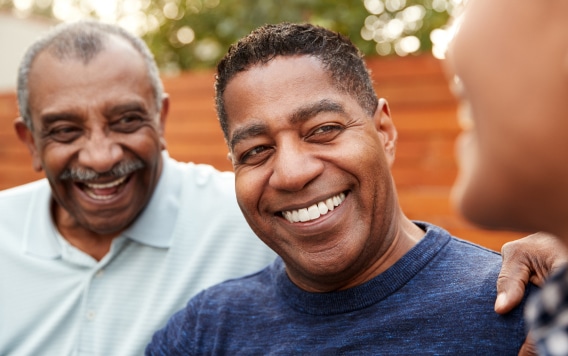Retina Treatments
While there are over 30 types of retinal diseases such as macular edema, retinal artery occlusion, and infectious retinitis, age-related macular degeneration (AMD) and diabetic retinopathy are the most widespread cause of blindness in America.
AMD is a serious condition, but it has become more treatable as recently as ten years ago. As a result, our goal at Vold Vision is to put patients at ease, help them understand the most current treatment options, and work together to manage their condition.

Diabetic retinopathy, on the other hand, causes more vision loss in people under the age of 65 than any other retinal issue. In rare cases, AMD and diabetic retinopathy can cause total blindness.
Other common conditions include retinal vascular occlusions, flashes and floaters, retinal tears and detachments, macular pucker, macular holes, vitreomacular traction, and uveitis.
What are Retinal Diseases?
With over 7 million cones, up to 150 million rods, three layers of nerve cells, and two layers of synapses – all packed into a complex membrane a half-millimeter thick, the retina is unbelievably intricate. As a result, complications with the retina are common, and often require intervention with an experienced medical professional.
AMD, or age-related macular degeneration, is the most common cause of vision loss for people over 65.
Why Should I Go to Vold Vision for Retina Treatment?
To keep your retinas healthy, Dr. Steven Vold, a nationally known authority in retinal health, brings his award-winning experience to diagnose and treat conditions of the retina. Along with our team of board-certified ophthalmologists and eye surgeons, patients who travel to Vold Vision in Northwest Arkansas receive an accurate diagnosis and a customized treatment plan.
No matter where your retina issues take you, start the journey with Vold Vision.
Take the Next Step
To learn more about retinal treatments, schedule a consultation with one of the providers at Vold Vision. Throughout your entire laser vision correction journey, you will have your very own Vold liaison to assist you with any questions you have. Our patient care counselors are available by text, phone, or email and no question is too small for them to answer. To schedule a consultation, fill out the consultation request form below, or call or text (479) 442-8653.

